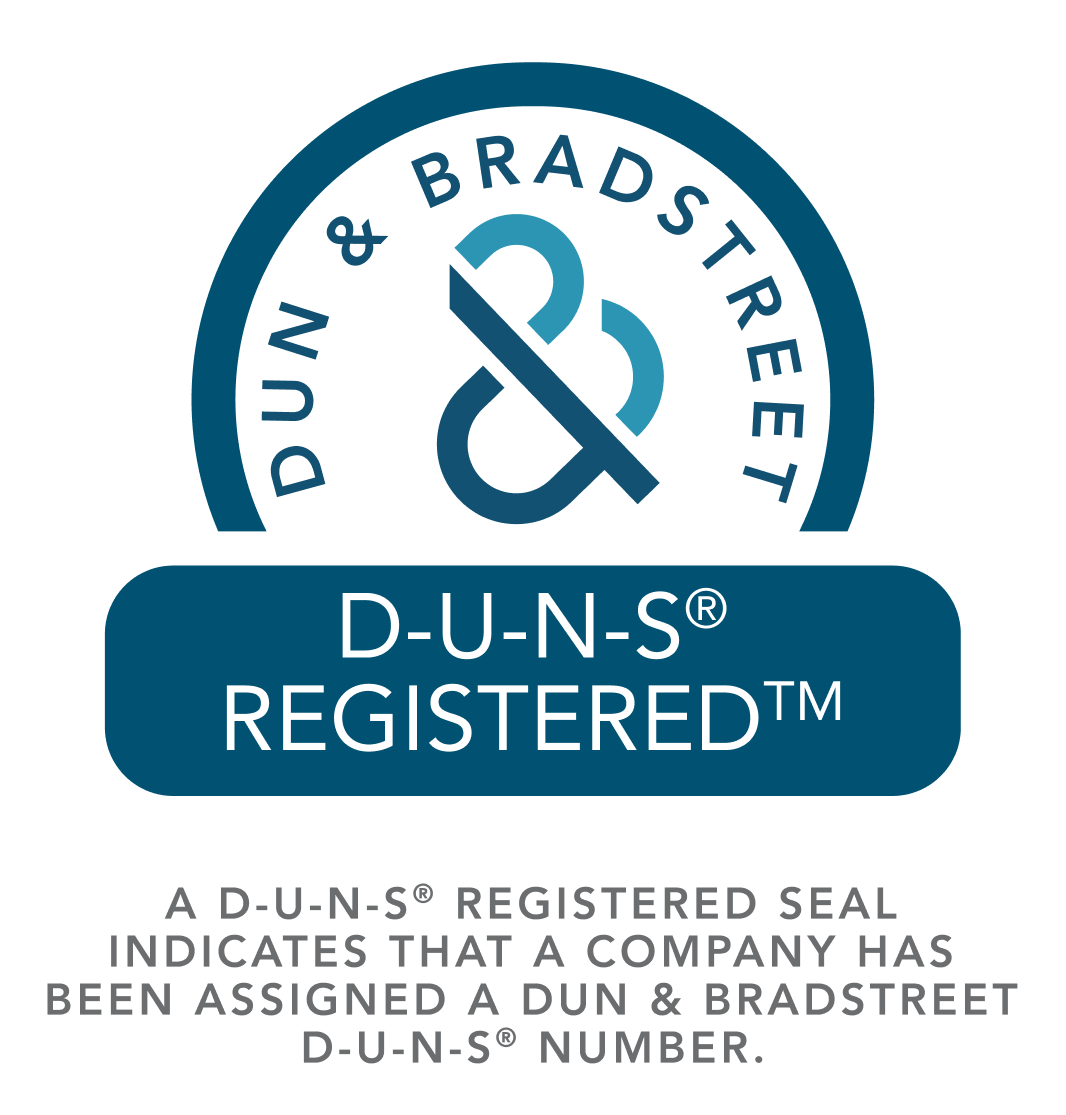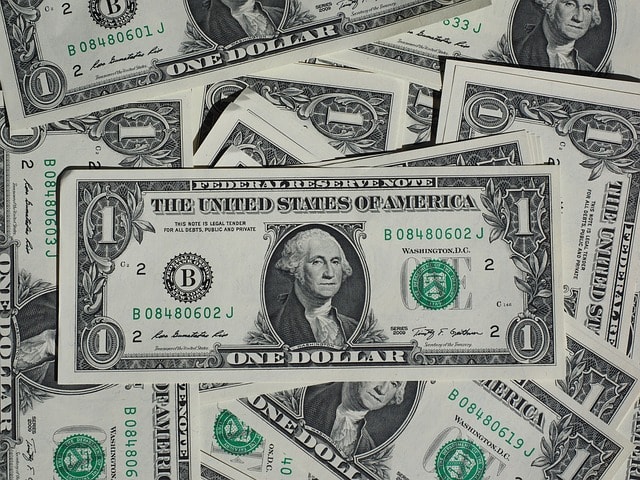What is a DUNS Number?
A Data Universal Numbering System (DUNS) number, sometimes written as D-U-N-S number, is a unique nine-digit identifier assigned to businesses by Dun & Bradstreet. It allows for tracking financial transactions and business activities to create a business credit profile. All businesses can apply for a DUNS number free of charge.
Businesses use the DUNS number to establish creditworthiness, apply for loans, and engage in international trade. This identifying number provides essential information about a company’s financial stability and credit history.
Having a DUNS number enhances credibility and visibility in the business world. It streamlines transactions and fosters trust among partners and business customers. By leveraging a DUNS number, companies can expand their reach and access new opportunities in various industries.
DUNDS Number vs Other Identifiers
DUNS numbers were phased out for federal contracts and grants in favor of a Unique Entity Identifier (UEI) in 2022. The UEI is assigned through the System for Award Management (SAM) for government purposes. A DUNS number is not legally required for most businesses, unlike an EIN which is mandatory for certain organizations.
What’s the purpose of a DUNS Number?
A DUNS number identifies a single business, similar to a Social Security number identifying an individual. The primary purpose of a DUNS number is to provide a universal method of identifying and tracking businesses for credit reporting and financial transactions. Government agencies, lenders, and vendors commonly use the unique entity identifier to assess a business’s credibility and financial stability before entering into agreements or transactions. Many state and local governments require a DUNS number to receive state funding.
Additionally, having a DUNS number can help businesses establish credibility and visibility in the marketplace, as it provides a standardized way for others to verify their existence and legitimacy. A strong business credit profile can improve loan terms, insurance, and trade credit agreements. Overall, the DUNS number is an essential tool for businesses looking to build trust and credibility in the business world.
How does a small business get a DUNS Number?
You can apply for a DUNS number for free on the Dun & Bradstreet website. If applying for a DUNS number, have details about your industry and the total number of employees ready.
Here’s a step-by-step guide for getting a DUNS number:
- Visit the Dun & Bradstreet website: Start by visiting the official Dun & Bradstreet website, where you can obtain a DUNS number.
- Fill out the online application: Once on the website, look for the option to request a DUNS number. You must provide information about your business, such as the legal name, business address, and contact details.
- Verify your identity: As part of the application process, you may need to provide certain documents or information to verify your identity. This ensures that the DUNS number is issued to the correct legal entity. Provide your business’s legal structure.
- Wait for approval: After submitting your application, you will need to wait for approval from Dun & Bradstreet. This can take a few business days, so be patient. After applying, you may need to wait up to 30 business days to receive your DUNS number. You can pay $229 for expedited processing to receive your DUNS number within eight business days.
- Receive your DUNS number: Once your application is approved, you will receive your unique DUNS number via email or mail. Keep this number safe, as you will need it for various business transactions and credit applications.
- Update your business profiles: After obtaining your DUNS number, update your business profiles with this information. This includes your company website, government registrations, and other relevant platforms.
- Utilize your DUNS number: Now that you have your DUNS number, you can start using it for various purposes, such as applying for business credit, bidding on government contracts, or establishing credibility with suppliers and partners.
What Happens After Getting a DUNS Number?
After getting a DUNS number, businesses can establish their credit profiles with Dun & Bradstreet. This unique identifier allows companies to access credit and business financing opportunities and build credibility with suppliers and potential business partners. Potential lenders and other businesses may use your DUNS number to verify your business’s credit history.
With a DUNS number, organizations can apply for grants and participate in international trade. It also tracks a company’s financial performance and stability, which can be crucial for future business growth and expansion. Additionally, having a DUNS number can enhance a company’s visibility and reputation in the marketplace, opening up new avenues for collaboration and growth.
Some next steps to consider after getting a DUNS number include:
- Update your business information with the D&B database.
- Monitor your business credit report regularly.
- Apply for government contracts or grants that require a DUNS number.
- Share your DUNS number with vendors, suppliers, and potential partners.
- Use your DUNS number to establish credibility with lenders and investors.
- Work with vendors that report to the major business credit bureaus.
- Consider opening a business line of credit or a business credit card to build credit history.
What are the advantages of a DUNS Number?
A DUNS number offers small business owners access to crucial business information like credit profiles and scores. It helps separate personal and business finances, safeguarding personal assets. All businesses can apply for a DUNS number free of charge. A DUNS number helps establish and build your business credit.
The number enhances credibility with lenders and suppliers, potentially leading to better business financing options. Government agencies and large corporations often require a DUNS number, opening up new opportunities for growth and collaboration. Obtaining a DUNS number benefits small businesses by enhancing credibility, protecting assets, and unlocking growth opportunities.
What are the disadvantages of a DUNS Number?
There aren’t many downsides to getting a DUNS number. The primary risk involved is mismanaging business credit and damaging your business credit score.
You also can’t build business credit just with a DUNS number. You must open business credit accounts with a payment history, such as tradelines or a business line of credit. The DUNS number is a tool to track activity on those accounts.
In addition, DUNS numbers are just one of many different financial health indicators. Relying on a single identifier could create an incomplete business credit profile. Some business creditors don’t report credit activity to Dun & Bradstreet.
Another limitation of a DUNS number is that many business lenders or credit card issuers still require a personal check. So, while a DUNS number can help with your business credit score, you’ll also have to maintain good personal credit. Due to requests from third parties, some businesses may have been assigned a DUNS number without applying.
DUNS Number Pros & Cons
Pros:
- Helps small businesses establish business credit.
- Allows for easier tracking of your business credit history.
- Helps potential partners and lenders assess your business’s financial stability.
- There is no cost to obtain a DUNS number.
Cons:
- Risks associated with mismanaging business credit.
- Requires opening business credit accounts with payment history to build credit.
- Not all business credit accounts report to Dun & Bradstreet.
- Small business owners typically still need good personal credit for a business loan.
How can I use a DUNS Number to Build Business Credit?
Corporations and LLCs exist as independent entities that positively impact credit assessments. Here are some essential steps to building business credit after obtaining your DUNS number.
Keep Personal and Business Finances Separate
When building business credit, it is crucial to establish a clear distinction between personal and business finances. Opening a business bank account is essential, as it helps track business expenses, income, and transactions separately from personal finances. This separation helps build a strong credit profile for the business and ensures financial transparency and accountability.
Open Tradelines
After obtaining a DUNS number, consider opening tradelines with vendors who report to business credit bureaus. This can help establish a positive credit history for your business and improve its creditworthiness. Make timely payments on these tradelines to further strengthen your business credit profile. Submitting trade references is essential to establish a record of responsible financial behavior.
Examples of business accounts to consider include:
- Net-30 accounts.
- Vendor credit.
- Business credit cards.
- Business line of credit.
- Small business loans.
Timely Payments
Payment history is the most critical factor influencing business credit scores. Making timely payments to a vendor is crucial for building strong business credit after obtaining a DUNS number. Consistently paying bills on time shows lenders and creditors that your business is reliable and trustworthy, which can lead to better credit terms and opportunities in the future. You can establish a positive credit history and improve your business’s financial reputation by prioritizing timely payments.
Maintain Low Credit Utilization
Maintaining low credit utilization is crucial when building business credit as it demonstrates responsible financial management and reduces the risk of default. Keeping credit utilization low also shows lenders that your business is not overly reliant on credit, which can improve your creditworthiness and increase your chances of securing favorable terms for business loans and financing. You can establish a strong foundation for your business’s financial health and growth by managing credit utilization effectively.
Monitor Your Business’s Credit Profile
It is essential to regularly monitor the business credit file associated with the DUNS number. Firms should review their credit reports to ensure accuracy and identify potential issues that could impact their creditworthiness. Addressing errors promptly can help maintain a positive credit standing. Monitoring business credit scores and ratings is an ongoing process.
Frequently Asked Questions
Here are the most common questions about what happens after getting a DUNS number.
What is considered a good Business Credit Score?
After obtaining a DUNS number, businesses should focus on their business credit score. This score is crucial for accessing business financing and favorable terms from suppliers.
A strong business credit profile can lead to better loan terms, insurance, and trade credit agreements. Some small-business grants and nongovernmental loans require a DUNS number to apply.
Many business credit scores exist, but most are on a scale of 0 to 100. Generally, a score above 75 is considered good. Many lenders also consider your personal credit score when deciding on loan approval.
What are the Dos & Don’ts after Getting a DUNS Number?
After getting a DUNS number, do:
- Update your business information regularly with Dun & Bradstreet.
- Monitor your business credit report for accuracy.
- Use your DUNS number when applying for business credit or government contracts.
- Share your DUNS number with vendors and partners to establish credibility.
- Keep your DUNS number confidential to prevent fraud or identity theft.
After getting a DUNS number, don’t:
- Share your DUNS number with unauthorized parties.
- Miss payments on credit accounts or utility bills.
- Max out revolving credit accounts.
- Use your DUNS number for fraudulent activities.
- Forget to update your DUNS information if there are any changes.
- Ignore any communication from Dun & Bradstreet regarding your DUNS number.
What’s the difference between a DUNS Number, EIN, & Federal Tax ID?
An Employer Identification Number (EIN) is a unique nine-digit number the IRS assigns to identify a business entity for tax purposes. It’s used to open bank accounts, apply for business licenses, and file tax returns.
A DUNS number is a unique identifier provided by Dun & Bradstreet to track a business’s credit activities. It’s commonly used when applying for government contracts or grants and establishing credibility with suppliers and lenders.
A Federal Tax ID number, also known as a Tax Identification Number (TIN), is used by the federal government to identify businesses for tax purposes. It’s essential for filing business tax returns, hiring employees, and opening business bank accounts.
The key difference between a DUNS number, an EIN, and a Federal Tax ID lies in their primary functions. While an EIN is mainly for tax purposes, a DUNS number focuses on credit activities, and the Federal Tax ID is crucial for tax filings and other legal requirements.
Is there a cost to get a DUNS Number?
No, obtaining a DUNS number is free. However, Dun & Bradstreet does offer paid accounts for enhanced credit services.
How long does it take to get a DUNS Number after applying?
Typically, it takes about 30 days to receive your DUNS Number after applying. However, expedited options are available for urgent needs, such as applying for federal grants or contracts.
Can a sole proprietorship obtain a DUNS Number?
Yes, even sole proprietors can apply for and obtain a DUNS Number. It can be beneficial for building credibility, especially if you plan to work with larger companies or seek business financing in the future.
Is a DUNS Number only necessary for US-based businesses?
No, DUNS Numbers are used globally and are not limited to businesses based in the United States. Having a DUNS number can be advantageous if your company operates internationally or plans to engage in global trade.
Is a small business required to have a DUNS Number?
A small business is not required to have a DUNS number, but it can be beneficial for establishing credibility with suppliers, vendors, and lenders. A DUNS number can also help small businesses access certain government contracts and grants. Ultimately, the decision to obtain a DUNS number depends on the business’s individual needs and goals.
Businesses that intend to bid on certain government contracts should apply for a DUNS number well in advance. Many state and local governments require a DUNS number to receive state funding through a contract, grant, or loan. Many global companies request DUNS numbers when vetting partners for contracts.
Does a DUNS Number ever expire?
Once assigned, a DUNS Number remains associated with a specific business indefinitely. This stability enables companies to maintain their financial reputation and credibility. Moreover, the DUNS Number is crucial in establishing trust with potential partners and clients when reviewing a company’s business credit file.
What Happens After Getting a DUNS Number – Final Thoughts
Obtaining a DUNS number is crucial for businesses looking to establish credibility and access opportunities. Once you have your DUNS number, you can start building your business credit profile, applying for government contracts, and expanding your reach.
Keeping your information updated and monitoring your business credit regularly is essential to ensure continued success. Getting a DUNS number opens new possibilities for your business growth and development.
Contact us if you have more questions about DUNS numbers and business credit or need to apply for a small business loan. Our alternative financing experts can help you find the best funding options for your business goals.












